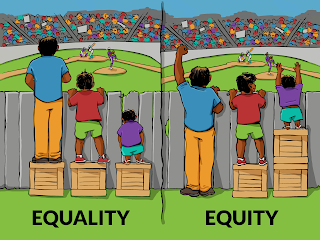The widening income inequality gap is a major concern for many Ghanaian citizens. A key contributor to this inequality is the exorbitant salaries paid to managers of state-owned enterprises (SOEs). Recent data from the Ghana Statistical Service has shown that these managers earn almost a hundred times the average Ghanaian salary.
According to a 2020 study by the Institute of Statistical, Social and Economic Research (ISSER) at the University of Ghana, the average monthly salary in Ghana is GHS 2,164 (approximately USD 370), while SOE managers earn an average of GHS 209,000 (approximately USD 35,000) per month. This means that SOE managers earn approximately 96 times more than the average Ghanaian. As stated in my article The Pursuit of Personal Gain in Ghanaian Politics, it is worth noting that these disparities are overwhelming.
This disparity is not only alarming, but it also has serious implications for the economy and society. When a select few earn significantly more than the rest of the population, it creates an unequal distribution of wealth, which can lead to social unrest and economic instability. It also perpetuates a culture of corruption and greed, as people seek to enter positions of power for personal gain rather than to serve the public.
This alarming disparity in income is not only unfair, but it also has significant implications for the Ghanaian economy. The concentration of wealth in the hands of a few SOE managers means that a large portion of the country's resources is not being invested in initiatives that could benefit the broader population.
The high salaries of SOE managers are often justified by the argument that they need to be competitive in order to attract top talent. However, this argument is flawed, as many of these SOE managers have been appointed due to their political connections rather than their qualifications and experience. Additionally, there is no evidence to suggest that higher salaries actually result in better performance by these managers.
The excessive salaries of SOE managers have also led to a culture of entitlement, where individuals feel entitled to positions of power and privilege, regardless of their qualifications or performance. This has resulted in a lack of accountability and transparency within these institutions, as managers are more concerned with maintaining their high salaries than with improving the performance of their organizations.
It is time for Ghana to address this issue of income inequality and excessive salaries paid to SOE managers. The government must take a more active role in regulating these institutions and ensuring that they are accountable to the people of Ghana. This can be achieved through the establishment of an independent oversight committee, which would be responsible for reviewing the salaries and performance of SOE managers and ensuring that they are acting in the best interests of the Ghanaian people.
Furthermore, the private sector can play a role in reducing this income inequality gap by offering fair wages and benefits to their employees. This would not only benefit the workers, but it would also stimulate economic growth by increasing consumer spending and investment in local businesses.
In conclusion, the issue of high salaries paid to SOE managers is a major contributor to income inequality in Ghana. The government, private sector, and citizens must work together to address this issue and promote fairness and accountability in all aspects of the economy.


.jpg)


.jpg)

